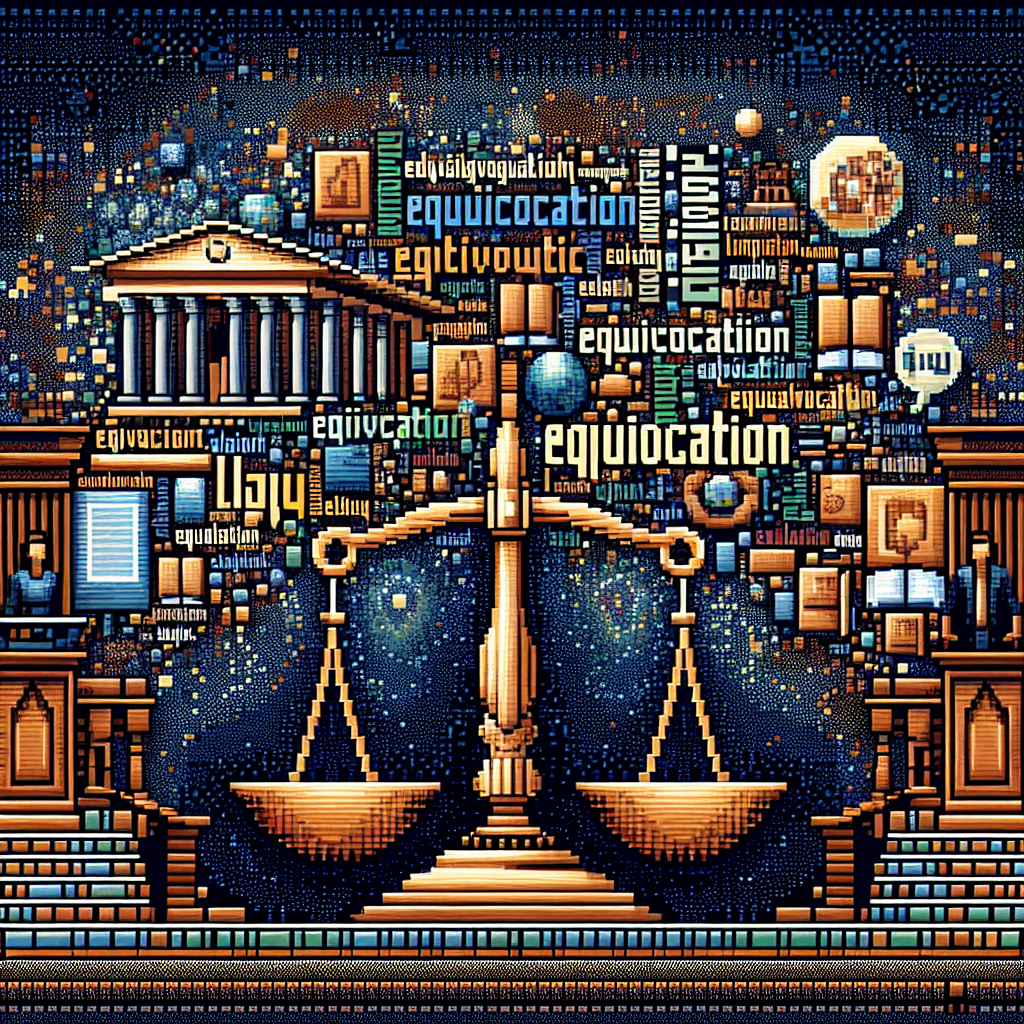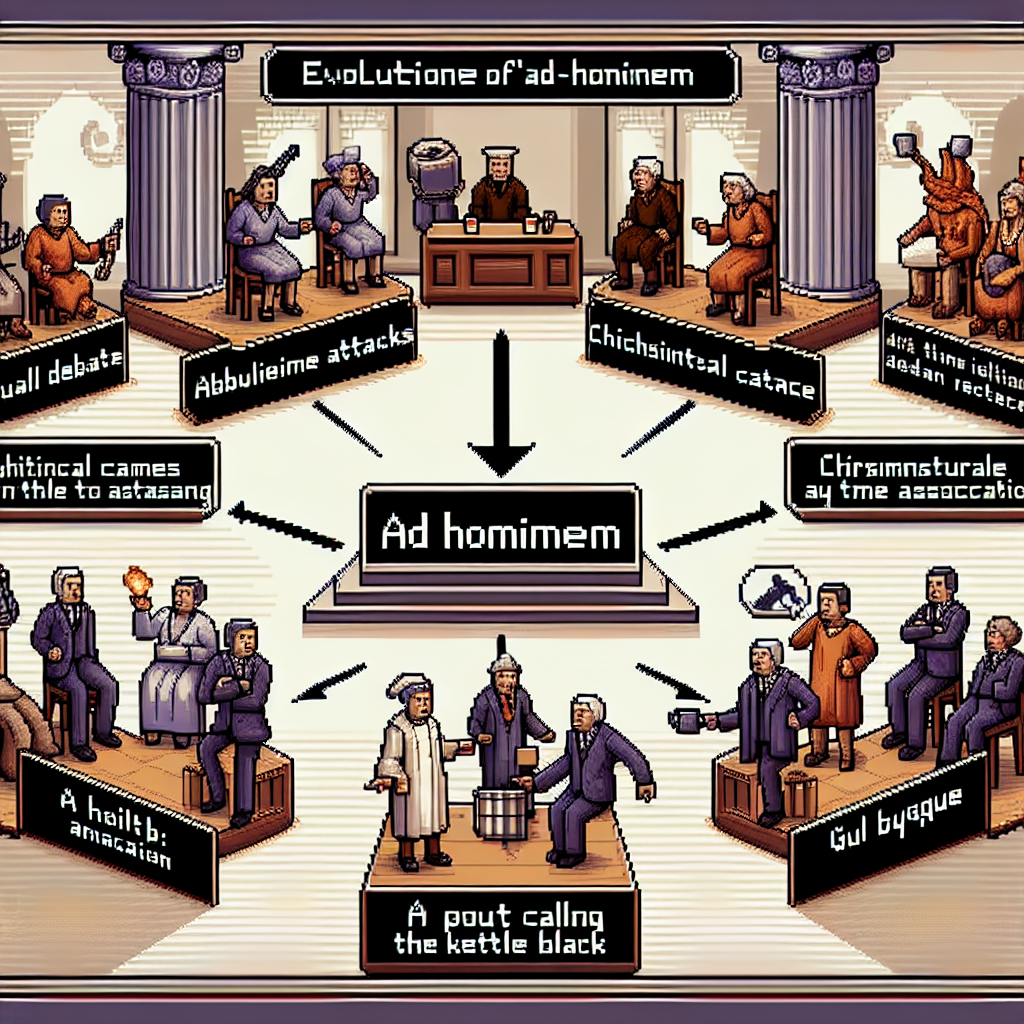Introduction to Equivocation
Explanation of Equivocation
Equivocation is a linguistic technique where a word or phrase is used with two or more meanings, often with the intent to deceive or confuse. It is vital to understand this concept because it can blur the clarity of messages during communication.
Importance in Communication and Argumentation
In communication and argumentation, being aware of equivocation is crucial. It helps prevent misunderstandings and allows for more precise and effective dialogue. Additionally, recognizing equivocation can aid in identifying flawed arguments that rely on ambiguity.
Purpose of the Article
The purpose of this article is to explore the multifaceted role of equivocation in various domains. By examining its uses and implications, readers can become more vigilant and intentional in their own communication. Ultimately, gaining insights into equivocation will enhance one’s ability to communicate clearly and understand others more fully.
Understanding Equivocation
Definition and Etymology
Equivocation is a term derived from the Latin word “aequivocatio,” which signifies the use of ambiguous language to conceal the truth or to mislead. At its core, it involves using a word with multiple meanings, albeit without specifying which one is intended. As a result, the listener or reader can be easily confused.
Common Examples in Everyday Language
In everyday speech, people might use equivocation unintentionally, employing words that have more than one interpretation. These occurrences can range from simple misunderstandings due to homonyms to more complex layers of meaning in diverse contexts.
Historical Context and Usage
Historically, equivocation has played significant roles in religious, legal, and political discourse. Before the increased emphasis on clarity in language, authors and speakers often relied on equivocation to navigate controversial topics. Despite its potential for obfuscation, it has been a crucial element in rhetoric and communication for centuries.
Equivocation in Argumentation
Role in Logical Fallacies
The role of equivocation in logical fallacies is significant. It often leads to misunderstandings during arguments. Additionally, it fosters confusion because words can take on multiple meanings depending on context. For instance, a term that appears clear initially may later reveal itself as ambiguous. This shift tricks the listener, making the argument seem valid despite its flaws.
How Equivocation Misleads Audiences
Equivocation can mislead audiences through intentional ambiguity. When speakers use words with double meanings, they exploit the listener’s trust in language. Consequently, audiences may accept erroneous conclusions. Before reaching a conclusion, one should carefully evaluate the context to avoid falling into the trap of equivocation.
Examples from Debates and Dialogues
In debates, equivocation often arises, misleading participants and audiences alike. For instance, political debates are rife with instances where terms are deliberately misused to sway opinions. Without careful scrutiny, these misleading arguments may wrongly influence decision-making and public perception.
Equivocation in Media and Politics
Examples in Political Speech
In political arenas, the use of equivocation often creates ambiguity, allowing politicians to deflect and navigate complex issues. This linguistic strategy can obscure true intentions, leading to misinterpretations by the public.
Impact on Public Perception and Decision Making
Equivocation influences public perception dramatically. Politicians can shape public opinions by strategically using ambiguous language, steering debates in their favor without making firm commitments.
Strategies for Identifying and Addressing Equivocation
Despite its prevalence, there are effective strategies to spot and address equivocation. First, individuals must critically assess the context in which terms are used, ensuring they recognize potential dual meanings. Additionally, media outlets should prioritize clarity, providing background information as necessary. Moreover, during debates, moderators can ask participants to clarify vague statements immediately, preventing potential manipulation. Finally, educators should teach critical thinking skills, empowering individuals to independently identify and question ambiguous language. Implementing these strategies can significantly enhance public discourse, ultimately fostering a more informed and honest society.
Equivocation in Literature and Rhetoric
Famous Literary Works Using Equivocation
Equivocation has been a key element in many literary masterpieces. Authors often employ this technique to add layers of meaning to their narratives, allowing readers to explore different interpretations. Additionally, it can create dramatic tension and intrigue, compelling audiences to delve deeper into the text.
Rhetorical Techniques and Their Effects
During rhetorical discourse, equivocation serves as a powerful tool. It strategically appeals to listeners by enhancing the speaker’s argument. Furthermore, it allows speakers to navigate complex topics with subtlety and finesse, creating a rich tapestry of meanings.
Analysis of Classic and Modern Texts
Despite its ancient roots, equivocation continues to influence modern works. By weaving this device into their prose, writers can challenge perceptions and provoke thought. Because it invites readers to unravel the layers of an argument, equivocation can have profound implications, resonating deeply with contemporary audiences.
Implications of Equivocation
Consequences in Various Fields
Equivocation, although sometimes subtle, can lead to significant consequences across multiple sectors such as law, education, and marketing. In the legal realm, ambiguous language can alter case outcomes, whereas in education, unclear communication may confuse learners. Additionally, marketing campaigns using equivocal terms might mislead consumers, impacting trust and brand reputation.
Ethical Considerations in Communication
During interactions, ethical considerations should guide our language choice. Despite its appeal, equivocation undermines trustworthiness and transparency, which are crucial to fostering reliable communication. To maintain ethics in dialogue, speakers must prioritize clarity and precision.
The Role of Equivocation in Shaping Society
Equivocation shapes society subtly yet profoundly. It affects how individuals interpret information, ultimately influencing societal norms and values. Therefore, understanding this phenomenon is pivotal for fostering critical thinking and informed decision-making. Before engaging in any discourse, one must consider the potential impact of ambiguous language on public perception and future societal changes.
Equivocation in Real-Life Contexts
Case Study: Political Campaign Speech
During a recent political campaign, a candidate cleverly used equivocation to appeal to a broad audience, yet left voters confused. For instance, the candidate promised to improve “public services,” but did not specify which services or how improvements would be made. This ambiguity was appealing to various groups, because each could interpret it in their favor. However, this led to dissatisfaction when promises remained unfulfilled. By examining such cases, we learn that while equivocation can be a powerful tool, it often results in mistrust.
Solution: Clarity and Transparency
To address the consequences of equivocation, advocates for transparency suggest politicians provide clear and specific promises. Additionally, they should outline actionable steps to achieve these goals. By doing so, politicians can foster trust and ensure a more informed electorate. Tools such as fact-checking and open discussion forums have become instrumental in helping the public discern equivocation before making decisions.


